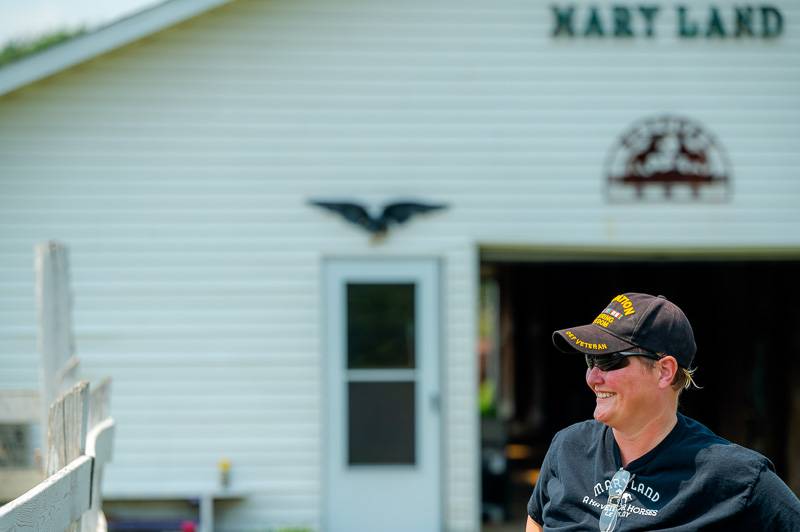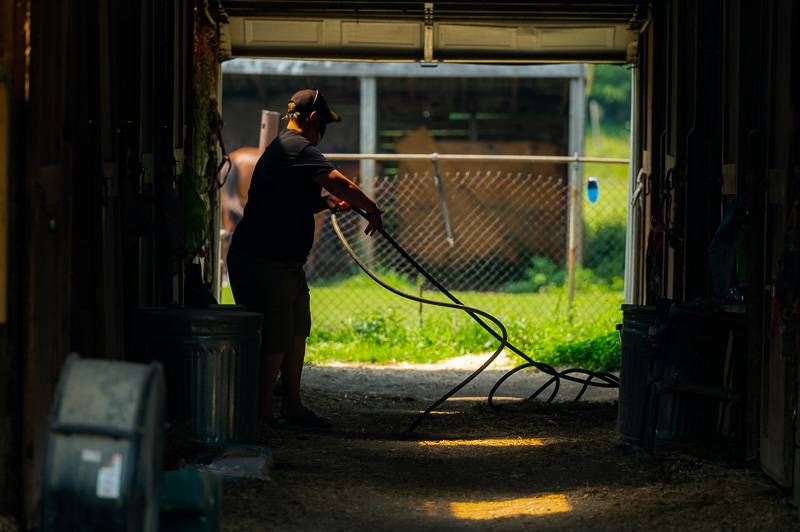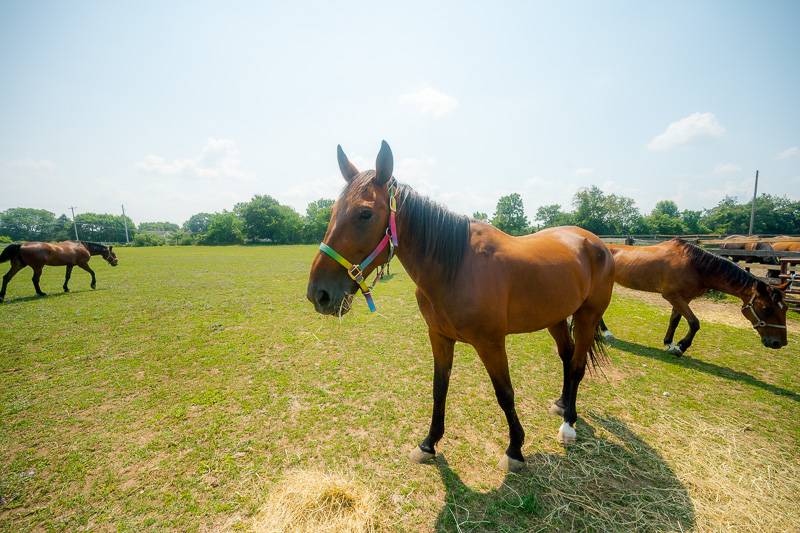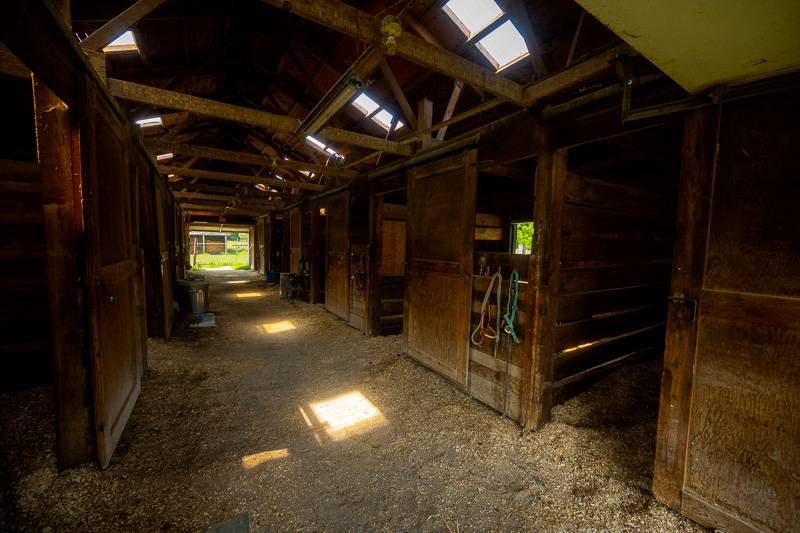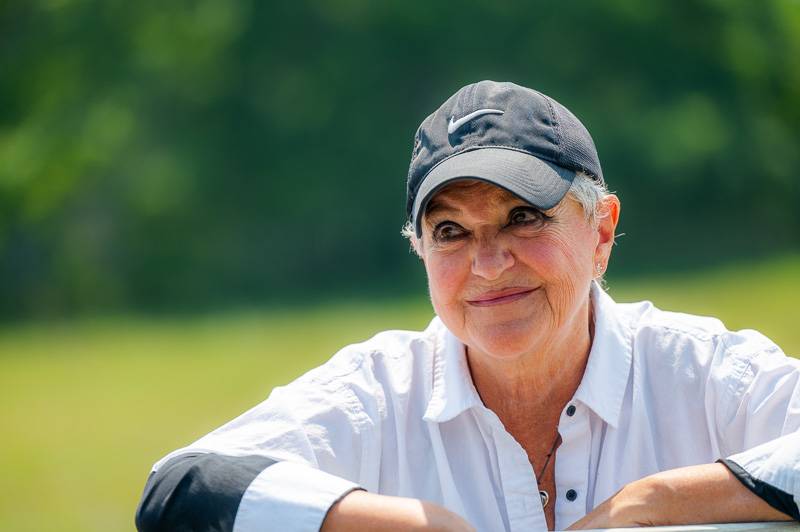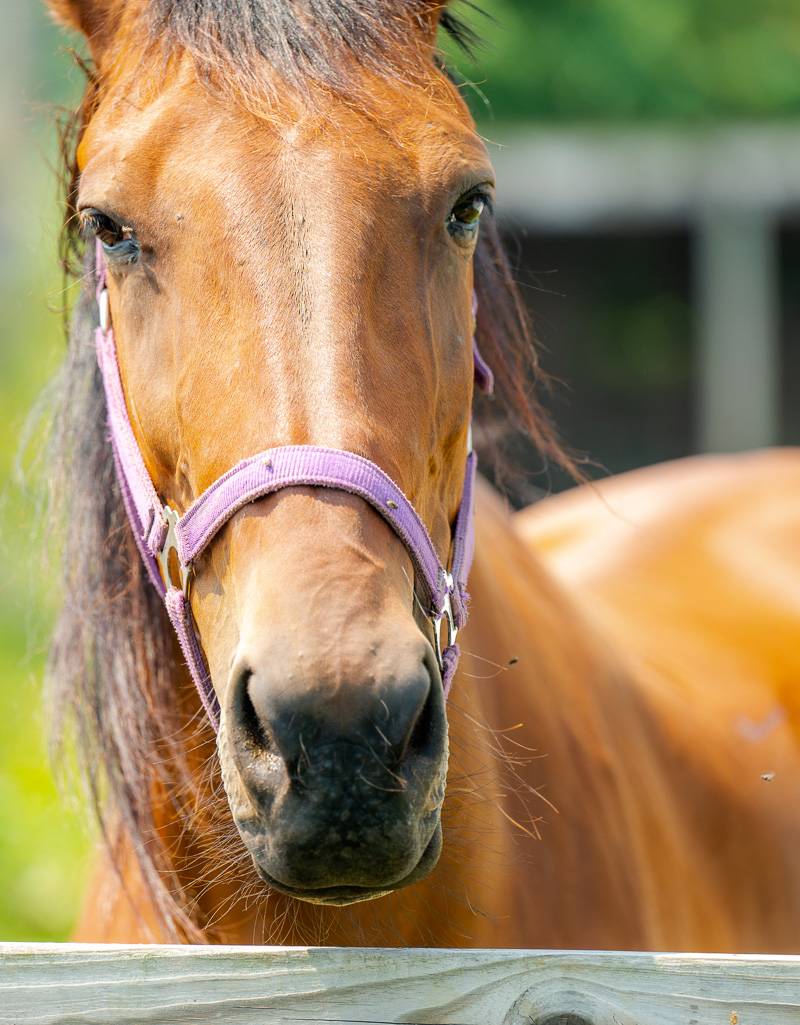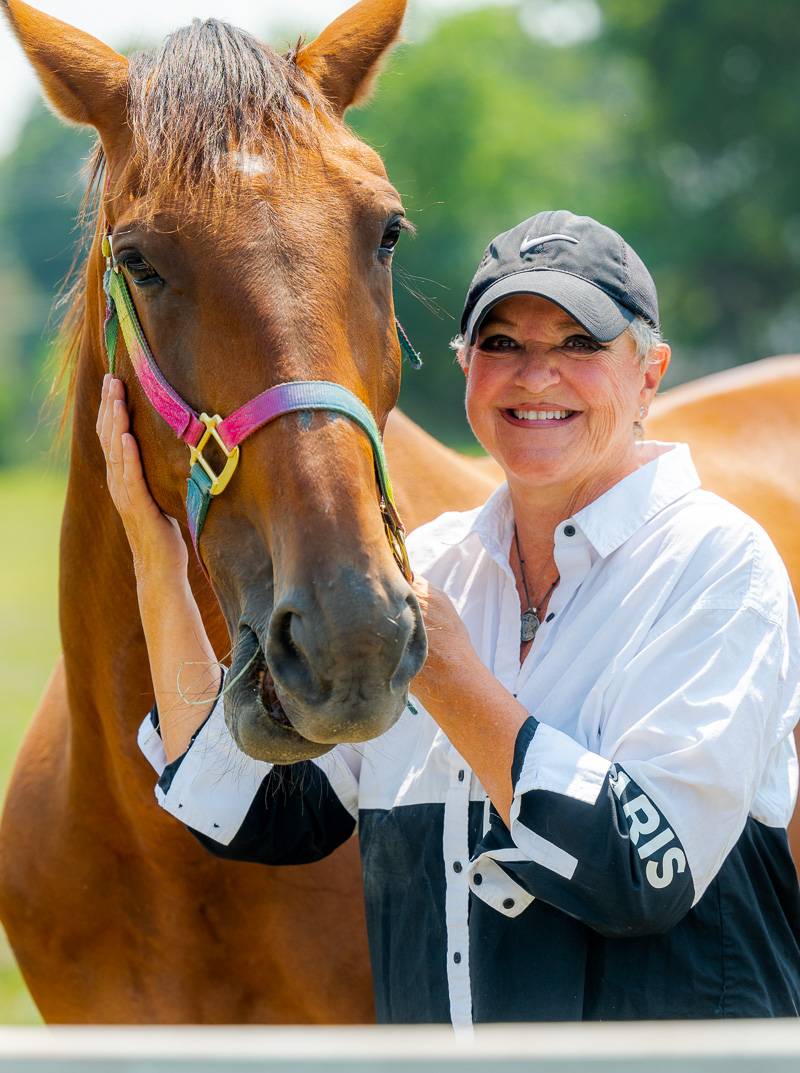
By Howard Owens
Early in the morning, after enough stillness has set in, they can hear the hoofbeats. It's as if a train is ramming down the 15-acre field. Maryanne Arena and daughter Jaime take bets on who will finish first.
Neither Arena is surprised at the impromptu race that has become like daily clockwork at MaryLand, a Haven for Horses, on West Bergen Road in Le Roy. After all, these magnificent creatures were once fine-tuned for racing -- Standardbreds, whose job was to get on the track and win.
Now, they just do it innately amongst themselves, with nobody else calling the shots.
"It's a wonderful thing to watch the race horses race on their own," Maryanne said at her home of 15 years that now also serves as the retirement sanctuary for 10 horses.
"We bring retired Standardbred racehorses here for the rest of their lives. Once a horse is accepted at MaryLand, it has a lifetime home," she said. "This is the difference between a 'rescue' and a 'sanctuary.' A rescue retrains and then finds adoptive homes for the horse. We accept and give a lifetime home where they are safe and have a dignified retirement."
Admittedly a poor kid from Brooklyn, she always loved horses, but her parents couldn't afford to buy and keep a horse at a stable, Arena said. Some of her earliest memories, with photos to preserve them, are of Arena with ponies.
"My father introduced me to horse racing, and I've been a fan ever since," she said. "Always dreamed of having my own horse farm and racing horses. I have done both. Started with a horse farm in Saratoga County, worked as a horse ranger for Saratoga National Battlefield.
"When I got my first racehorse, I asked the trainer what happens when a horse is finished racing. She gave me several options, and I thought then that I had to get a farm to retire that horse to," Arena said. "I did, and later that farm would evolve into MaryLand, not only for my horse but for others who needed a home to retire to."
There are 10 horses that fill 10 stalls in the barn on site, with future plans and fundraising for a second barn to take on more horses. But Arena knows enough to know that "I will not take on more than we can afford at one time." And she won't allow any horses to live out in the elements 24 hours a day, she said.
So besides the crucial need for shelter, there are the other challenges of being a caretaker: "Horses are expensive, and you cannot cut corners," she said.
"They need food, clean stalls, hay, vet care, a farrier, blankets, halters, and many other things," Arena said. "Right now, I pay for most of the care myself, along with the fundraising the organization does. The goal is to become sustainable so we can continue saving horses without worrying month to month about expenses."
So let's back up; when did Arena get her very first horse?
As a police officer in Brooklyn. His name was Romeo, and he led her on a love affair that's ever strong today. She's out at the barn by 7 a.m. each morning and there to say good night, feeding the house guests "plenty of cookies" before bedtime. In between that, there are chores that Jaime helps out with, such as cleaning stalls, scrubbing buckets and giving them fresh water. She's allergic to the dust in the barn and so wears her U.S. Navy mask to better tolerate the air.
Both Jaime and Maryanne would like to have some type of program for children and veterans to be able to visit with the horses for some type of trauma therapy. There have been such programs developed using horses and other animals to assist people in therapeutic healing, and Jaime has struggled with PTSD, she said, and believes in the power of equine therapy.
"It's the dream to start a program for vets someday," she said.
Obviously, as someone who still has a horse in the race, literally -- Maryanne's Sissy just won at Batavia Downs -- she knows horses, and she knows these horses -- beginning with Slim, the first one that she took in and then never looked back.
And there's Grandmother, the 31-year-old who went running on the ice and fell, ripping her knee apart to the bone. "We almost lost her," Arena said of that winter incident, but the tough granny pulled through and is now fine.
Slim is "the man," first in charge of the group, with Rocky second in command. Each horse has its own distinctive personality, she said.
"They are flight animals and have emotions. They, if treated gently, they will be gentle. They are very smart and respond to the human they are with. I have a great respect for horses," she said. "Most of all, I agree with the great trainer Monty Roberts, who says that if a horse does something wrong, it is the human that did something wrong."
Despite the work involved, there are also rewards for the effort.
"Every day when I get up and go to the barn to feed them and turn them out I see happy and healthy horses," she said. "Horses I love to show people. Horses I want to spend time with. They are great therapy. Good for the soul and mental health. That is the reward."
For more information, go to MaryLand.
Photos by Howard Owens.
